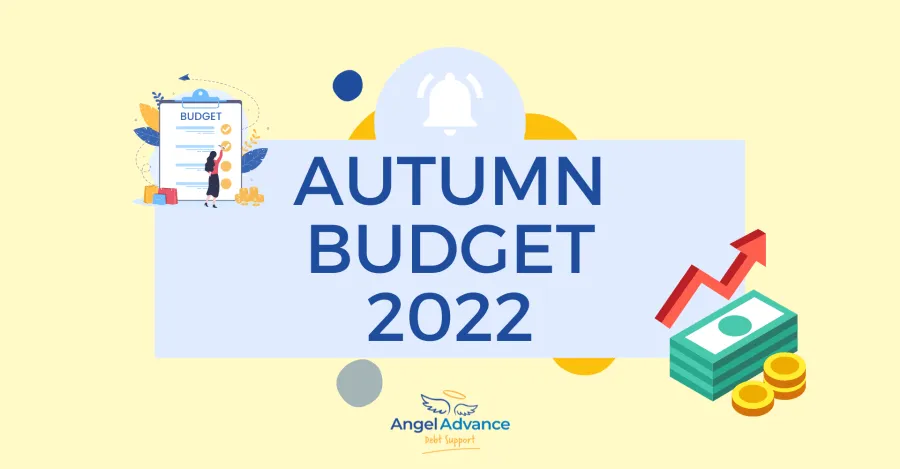With the UK now officially in a recession and the cost of living continuing to soar, many have been eagerly waiting for Jeremy Hunt’s latest budget to see what help, if any, it would provide for struggling households.
Here, we look at what exactly the 2022 Autumn Budget means for your finances?
What Does The 2022 Autumn Budget Means For Your Finances?
Income tax thresholds frozen until April 2028
Income tax thresholds will be frozen until April 2028 meaning that those who do receive a pay rise will pay more income tax over time. Therefore, may UK households are unlikely to feel much benefit from any pay increases
Changes to the Energy Price Guarantee
The Energy Price Guarantee has currently capped an average energy bill at £2,500. However, the government previously announced that the price guarantee would be reviewed in April 2023. The 2022 Autumn Budget provided more clarity on this quite pressing issue for UK households with the Government announcing that from April, the average yearly energy bill will be £3,000/year until 31 March 2024.
While many will feel reassured that energy bills are not increasing in line with the Ofgem price cap, this change in the Energy Price Guarantee will still amount to an average 20% rise in energy bills for most households, an increase that already struggling households will find hard to bear.
Adding to this, the energy bill support scheme that led to all households receiving a £400 payment will not be extended. This, combined with the 20% increase in bills from April, will actually result in around a 43% increase in dual-fuel energy bills.
Cost of living support outlined
While exact details are yet to be confirmed, Jeremy Hunt did announce that additional cost of living support will be provided for those deemed the most vulnerable in society.
While not everyone will be eligible, households could receive up to £1,350 depending on their circumstances. This is broken down into the following:
Support for those on means tested benefits
Those receiving means tested benefits can receive an extra £900 one-off payment to help with the rising cost of living. This includes those that receive:
- Child or working tax credits
- Income-based jobseeker’s allowance
- Income-related employment and support allowance
- Income support
- Pension credit
- Universal credit
Those on any of the below disability benefits will receive an extra £150 towards the cost of living:
- Armed forces payment
- Attendance allowance
- Constant attendance allowance
- Disability living allowance
- Personal independence payment
- Scottish disability benefits
- War pension mobility supplement
Support for pensioners
Pensioners will again receive an extra £300 towards rising costs in 2023-24
Dates for all extra cost of living support have yet to be confirmed, however, as with previous payments it is likely that these will again be automatically distributed.
It is however worth ensuring that all your contact details are up to date with your relevant benefit organisations.
State pensions will rise by 10.1%
Since 2010, pensions have been guaranteed to rise either in line with inflation, average wage growth or 2.5%, whichever is higher. This is known as the ‘triple lock’. However, this was suspended during the current financial year due to a spike in average earnings. Instead, pensions increased in line with 2.5% or inflation, a measure coined the ‘double lock’.
In the 2022 Autumn Budget, the Government has announced a return to the triple lock meaning that pensions will rise by 10.1% – the current rate of inflation.
Benefits will rise by 10.1%
As with pensions, inflation-linked benefits will also increase by 10.1% in line with inflation. This means that Universal Credit payments will go from £334.91 a month to £368.74 a month for single people over the age of 25.
National living wage will increase from April 2023
From the 1st April 2023, The National Living Wage (NLW) will increase from £9.50 to £10.42 from 1 April 2023, an increase of 92 pence.
This will be a welcome increase for many workers, especially as the cost of living crisis shows no signs of abating.
What if I need more help with my finances?
While the 2022 Autumn Budget does go some way to supporting the most vulnerable with the rising cost of living, rising taxes combined with already record-high inflation and energy bills means that for many, the measures announced by Jeremy Hunt will do little to ease their financial woes. In fact, the Office for Budget Responsibility (OBR) is predicting ‘the largest fall in living standards since ONS records began’.
With this in mind, the Government has pooled together help for struggling households under the Help For Households campaign. The Help for Households campaign outlines 6 key areas where help is available for the rising cost of living and how you can access this. You can read more about this in our Help For Household’s guide.
Free online debt advice
Despite the Help For Households, consumers are still likely to feel the brunt of rising costs throughout the winter.
If you are struggling to make ends meet and are finding yourself in problem debt then you should seek debt advice from a trusted provider. Using our free online tool, we can recommend the best debt solution for you based on your circumstances. Get started today to see if our debt solutions can get you back on track.


